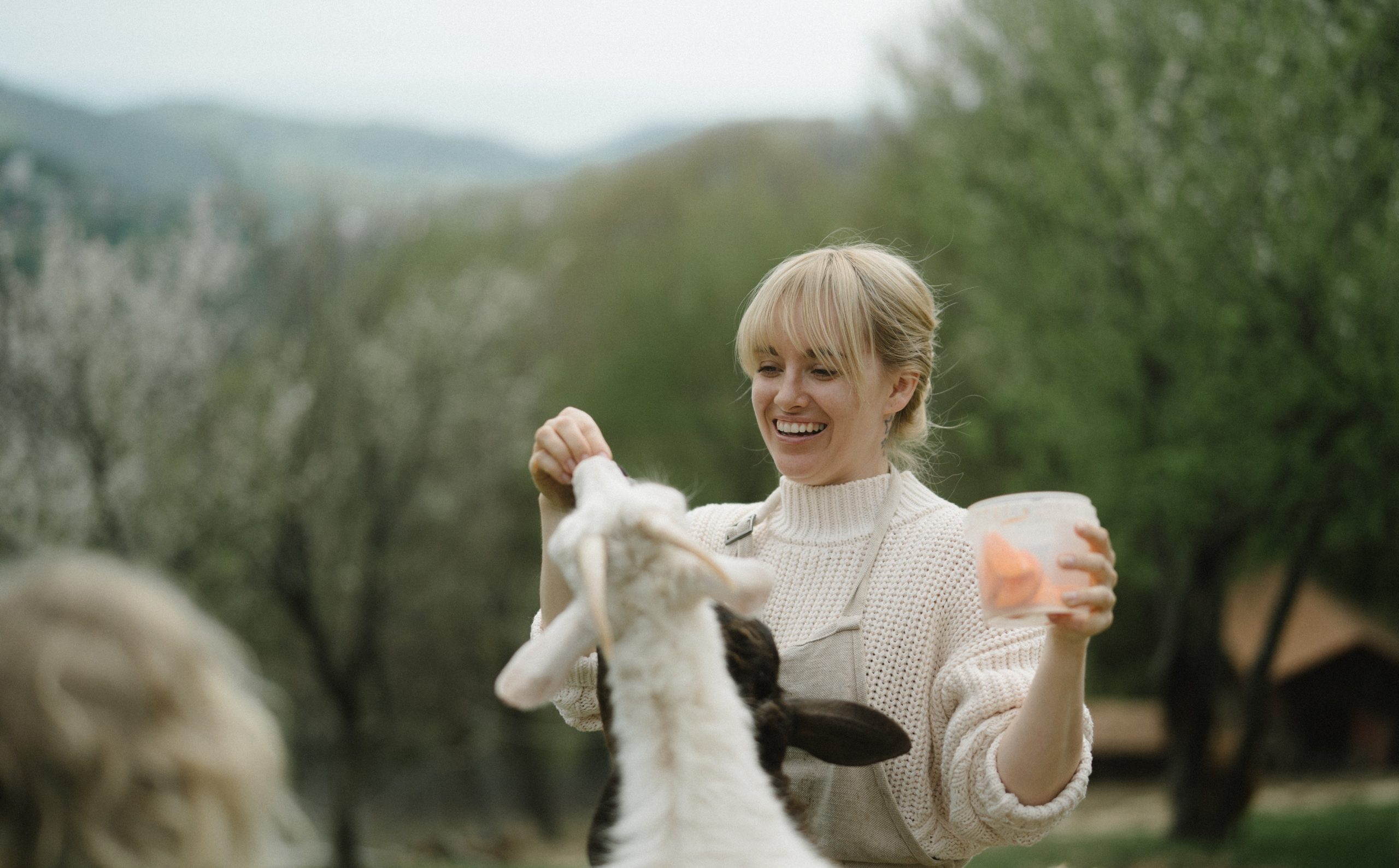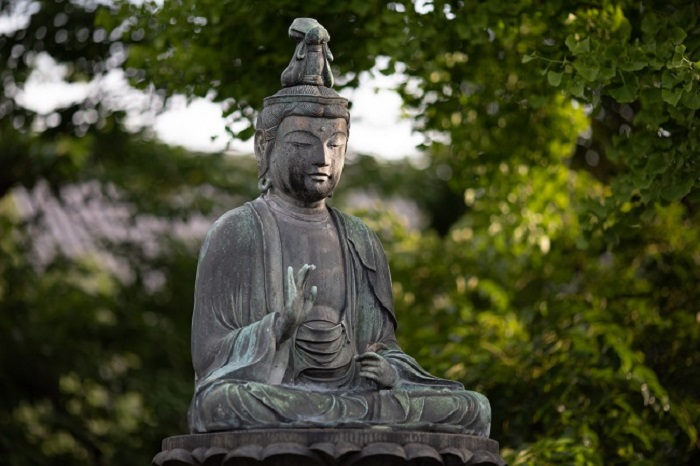I’ll let you in on a little secret about life: There is no wisdom without compassion. To put it another way, you can’t act wisely in life if you don’t start from a place of compassion for everyone and everything around you. In fact, every time we act in an unwise manner, it’s because we have chosen to relate to others without compassion.
So, what is compassion anyway? Well, it involves both feeling and action. When we have compassion, we feel concern for the suffering of others. And that feeling inspires us to act in ways to alleviate that suffering. Or, we may want to act in ways that don’t cause others to suffer.
As a simple example, let’s say that you are concerned about the suffering of animals. You feel pity for animals who are abused by people, or for those who are slaughtered for food. Your pity and concern then inspire you to act. So, you may adopt an abused animal from the humane society. Or, you may stop eating meat and become a vegetarian. Or you may donate money to organizations that promote animal welfare. When your concern is followed through with action, it’s then that you are being compassionate.
Think about all the unwise, regrettable things that you’ve done in your life. I guarantee that in each instance, you’ve failed to act with compassion. Perhaps you acted in a way to advance your own interests, without regard for the feelings or needs of others. Or, maybe you turned a blind eye to suffering of someone else.
If you are seeking to act in a wiser and more compassionate manner, consider following the approaches below. The good news is that if you develop your compassion for others, not only will your relationships benefit, but your emotional well-being will improve, and you’ll make a positive contribution to the world.
Practice Empathy
The first step toward becoming a more compassionate person is to develop your empathy. Empathy is the ability to not only understand the feelings of others, but on some level, to share those feelings. So, if we are sympathetic, we may say, “I’m sorry you are sad.” If we are empathetic, we’ll say, “I’m sorry you are sad, and know just how you are feeling. I know what it feels like to be sad.”
For example, my mother passed away last year. Shortly thereafter, my very dear friend’s mom passed away. When she and I talked afterwards, I had a great deal of empathy for her situation. That is because I not only was sorry for her loss, but I understood what she was going through. I understood what it was like to experience grief.
Now, realize that we don’t have to have had the same experiences to have empathy for others. For instance, I’ve never been homeless. But I do know what it’s like to feel worried about the future, and to be under a lot of stress. So, I can feel a great deal of empathy for a homeless person who is worried and stressed out about what life will bring.
Having empathy is important because it allows us to make connections with others. For instance, if you say to someone, “I’m sorry that you are suffering,” of course, they’ll appreciate the sentiment. However, if you say to someone, “I’m sorry you’re suffering. I’ve been there and know how you are feeling,” then you’ve made a connection with that person. Because they then feel understood by you.
Empathy helps us to develop our concern for others. That is because if I understand your suffering, and have experienced it myself, it’s easier for me to feel concern for you. And that is the first step in having compassion for others.
Develop a Daily “Loving Kindness” Meditation Practice
One of the best meditation practices for developing your compassion is a “loving kindness” meditation. In that practice, you meditate on feelings of goodwill toward yourself, then other people, then other creatures and finally, the earth.
A traditional loving kindness meditation may use the following mantra:
May you be happy,
May you be healthy,
May you be safe,
May you live with ease.
Meditating using a loving kindness mantra helps us to focus our attention on the well-being of others, which is the first step in compassionate living.
Over the years, I’ve tried many different approaches to meditation. At times, I would read a short passage and then meditate. I’ve also used the Calm App for guided meditations. And most recently, I started attending a daily, online, 15-minute, morning meditation with the Cambridge Insight Meditation Center, which has been the most rewarding approach thus far.
Whatever approach to meditation you choose, the key is to take time each day to develop feelings of goodwill toward all people, creatures and the world. You then are on track to becoming a wiser, more compassionate person.
Help Others
I know people who fear helping others. That may sound strange, but they think that if they help other people, they’ll be taken advantage of. So, instead they live their lives serving their own interests. Unfortunately, the fear of being “taken advantage of” is psychologically deep-rooted for many people.
If you aren’t helping others for fear of being taken advantage of, the best advice I can give you is this: Let that fear go. It isn’t serving you. It’s simply getting in the way of your making connections with others.
As I mentioned above, Step One in developing your compassion is to care about the suffering of others. Step Two is to try to alleviate that suffering. You can’t alleviate suffering if you are unwilling to help others.
When we help others, we effectively are saying three things to them: I see you. You matter to me. And I want to help you to be happy.
For instance, my husband and I are helping my daughter by paying for her college education. I can assure you that we aren’t fretting about whether we are being taken advantage of. That would be silly.
By providing her with a college education, we are sending the message to my daughter that we care about her future. We are letting her know that we want her to be successful and happy. And she, in turn, feels loved and supported by us.
And that is what helping others accomplishes. By helping others, we either are actively alleviating the suffering of others, or we are promoting the well-being of others. Helping is truly the way that we put our feelings of compassion for others into action.
Practice Kindness at All Times
If you ever are wondering, “How can I respond in a wiser and more compassionate way to this situation?”, this is your answer: Be kind. The kind response is always the wisest one.
Unfortunately, in our society, we mistakenly equate kindness with weakness. We think that if we are kind and gentle toward others, that shows we aren’t tough. Nothing could be further from the truth.
The reality is that we can all respond in aggressive, rude or violent ways to difficult situations. But I can assure you that that kind of response doesn’t show strength. Rather, it shows a lack of self-control and emotional maturity.
Wise, compassionate, decent people act with kindness. All the time. Why? Because they have control over themselves. They aren’t ruled by their emotions. Rather, they are ruled by a code of morality that guides them to be kind and gentle in all situations.
In fact, if you truly want to become wiser in how you interact with others, develop your own Personal Code. Decide what kind of person you want to be. And then be that person consistently, in public and in private.
I have a Personal Code that I stick by. It doesn’t matter to me what people around me say or do. People may be rude or insulting, and I may find their behavior to be upsetting. But my response to that behavior is guided by my Personal Code. And my Personal Code is to be kind, encouraging and careful with the feelings of others. At all times. And I am unwilling to deviate from that Code, no matter what is going on around me.
When we choose to act with kindness, we are on the path to wiser, more compassionate living.
If you are seeking to become a wiser, more compassionate person, consider following the approaches above. Developing wisdom and compassion is an ongoing process that will require your patience and some self-awareness. But becoming a wiser, more compassionate person ultimately will lead you to be a truly positive influence in the world. (To read about embracing ahimsa to become a better human being, click here.)








